MercoPress. South Atlantic News Agency
Tag: World Bank
-
Wednesday, October 8th 2014 - 07:51 UTC
Argentina needs an “urgent change of course” and better relations with financial markets
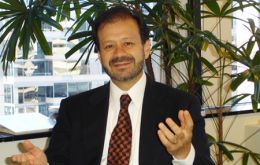
The Argentine economy needs an urgent change of course which would have the effect of reestablishing normal relations with the financial market, a crucial step to open a maneuvering space in an ever more complex environment, suggested Augusto de la Torre, World Bank chief economist for Latin America.
-
Wednesday, October 8th 2014 - 04:05 UTC
World Bank: end of boom doesn’t have to mean a bust for the poor in Latin America

During the recent commodity boom, Latin America and the Caribbean proved that growth could be pro-poor and help fuel tremendous social progress. Now as growth slows regionally and beyond, it is critical to consider what will shore up economic activity while ensuring the poor won't stay behind.
-
Wednesday, October 8th 2014 - 03:46 UTC
World Bank supports Argentina, favors institutional frame for 'holdouts'
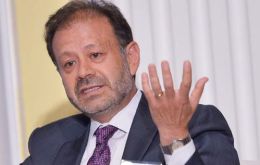
World Bank Chief Economist for Latin America and the Caribbean Augusto De la Torre has said the ongoing conflict between Argentina and holdout creditors is due to the “lack of international debt regulation frames”, and favored Argentina's initiative in the UN to “solve the situation.”
-
Monday, September 22nd 2014 - 05:01 UTC
A third of Argentina's population 'vulnerable' to falling back into poverty, says World Bank

Approximately 33% of Argentina's population (or those living with between 4 and 10 dollars per day) are vulnerable to falling into poverty if faced with adverse economic conditions, the World Bank said in its 2015-2018 Country Partnership Strategy (CPS) report for Argentina.
-
Saturday, September 20th 2014 - 08:33 UTC
World bank describes global growth this year as 'disappointing'

Global growth had been “disappointing” this year, according to World Bank president Dr Jim Yong Kim, who counted Europe's woes, reforms in Japan, and the impact of US monetary policy on emerging markets, among the world's greatest economic challenges.
-
Wednesday, September 10th 2014 - 07:35 UTC
Caribbean nations beaches disappearing because o rising sea level and recurring storms
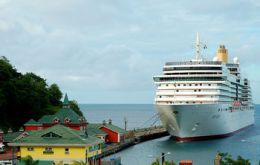
The World Bank says due to rising sea levels and recurring storms, the beaches in most Caribbean nations have started to disappear. In a new report, the Washington-based financial institution said, in some areas of St. Vincent and the Grenadines, for instance, an estimated 18-30 meters of beach have been lost over the last nine years.
-
Wednesday, September 10th 2014 - 06:03 UTC
World Bank commits 5bn dollars financial support for Argentina in 2015/2018
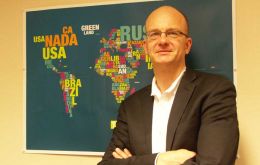
The World Bank Group’s (WBG) Executive Directors discussed a new Country Partnership Strategy (CPS) for Argentina covering fiscal years 2015-2018 with financial commitments over the period expected to be in the range of 1 to 1.2 billion dollars per year plus 1.7bn for the private sector.
-
Saturday, August 30th 2014 - 07:07 UTC
New World Bank delegate in Argentina; 'country strategy' to be considered next month
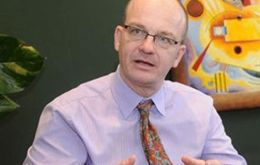
The World Bank board of directors will be discussing sometime next month a new aid program for Argentina focused on combating poverty, but the loans approval can't be expected until next year, according to the bank's new representative in Argentina, Jesko Hentschel.
-
Tuesday, August 5th 2014 - 06:58 UTC
World Bank pledges 200 million dollars to combat the West Africa Ebola epidemic

With the latest death toll from the West Africa Ebola epidemic now at 887, the World Bank Group pledged on Monday as much as 200 million dollars in emergency funding to help Guinea, Liberia, and Sierra Leone contain the spread of Ebola infections, help their communities cope with the economic impact of the crisis, and improve public health systems throughout West Africa.
-
Monday, July 7th 2014 - 23:42 UTC
China economy with moderate growth in medium term, says World Bank

China’s growth will moderate over the medium term as the economy continues to rebalance gradually. Growth is expected to slow to 7.6% in 2014, and 7.5% in 2015, from 7.7% in 2013, according to the World Bank’s China Economic Update latest edition.
